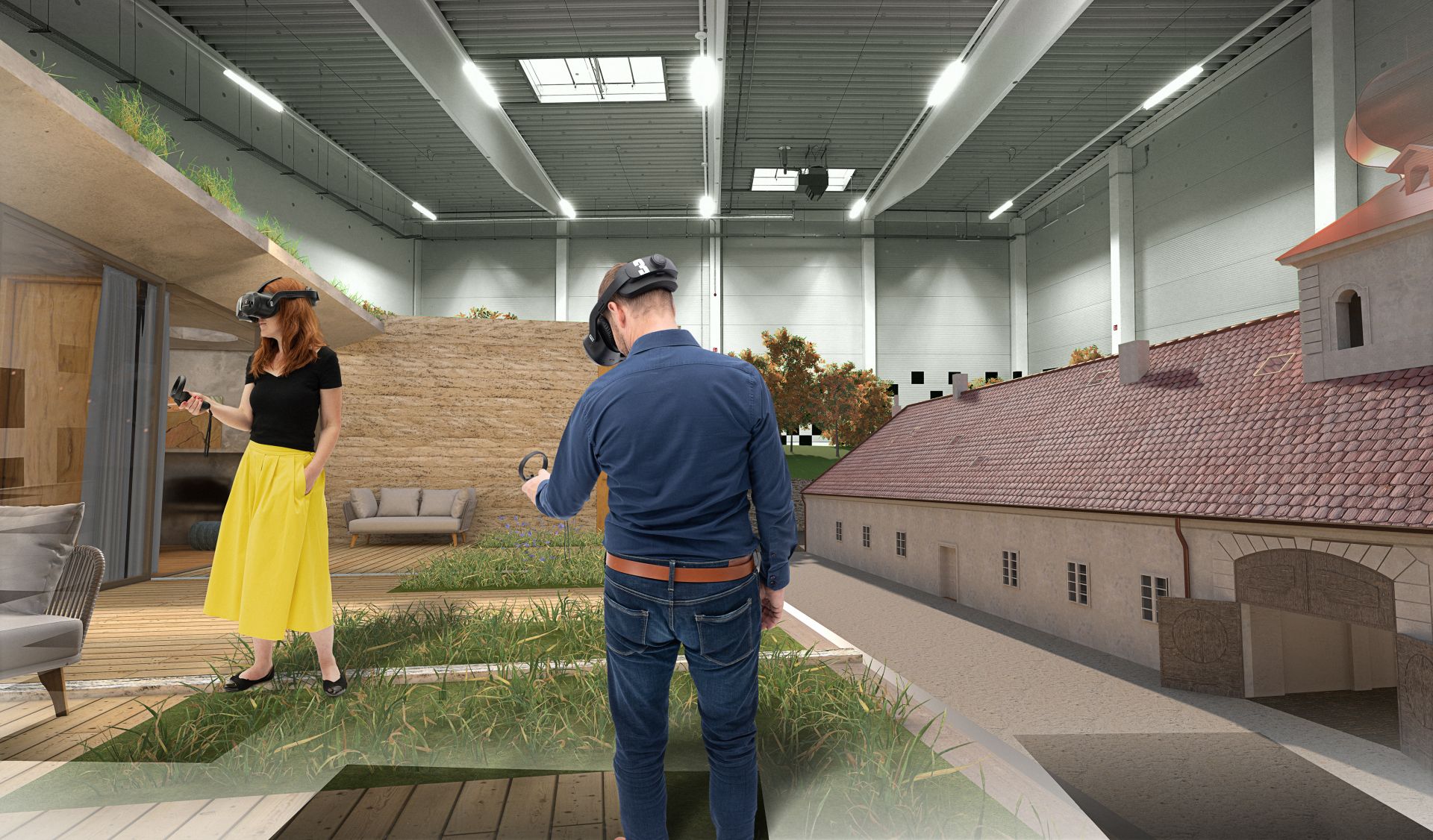The experience in Virtuplex was mind-blowing, Dr. Adam Rapoport said
In 2011, Dr. Adam Rapoport became the first Medical Director of the Paediatric Advanced Care Team (PACT) at SickKids hospital in Toronto.
In 2011, Dr. Adam Rapoport became the first Medical Director of the Paediatric Advanced Care Team (PACT) at SickKids hospital in Toronto.

He is also the Medical Director at Toronto’s only pediatric residential hospice — Emily’s House, and an Assistant Professor in the Departments of Paediatrics and Family & Community Medicine at the University of Toronto. He worked with the Vlček Family Foundation as a consultant for the children´s hospice project at Cibulka - and although the complex will be completed in 2026, he walked through it in the Virtuplex VR lab.
Your children´s palliative care unit in Toronto uses virtual reality in patient care. However, you yourself tried virtual reality for the first time when you presented the hospice at Cibulka. How was that experience? What did you take away from it?
I am the Medical Director of Pediatric Palliative Care at SickKids Hospital in Toronto, and I was involved in the beginning stages of the hospice project. When we described it to the media and other healthcare providers, we had to use our words and drawings. However, the experience in Virtuplex was mind-blowing. Walking through the rooms and seeing what it would look like in every detail brought Cibulka Hospice to life for me. I just wish we had this technology when we were building our hospice. It was a truly remarkable experience!
How do you use virtual reality in your work?
In Toronto, we look after very sick patients, some of whom are confined to their hospital rooms due to the medical care they require. We have started using virtual reality to temporarily transport them out of the hospital. Patients have gone under the sea, to Disney World, and even to outer space. They have had amazing experiences, but they also reported feeling better and experiencing reduced pain and stress. It's truly amazing. So this is something we are looking into in scientific research.
And do you have any other virtual reality projects in the pipeline?
A colleague of mine is leading a research project to use virtual reality to support teenagers living with serious illnesses. Often, young people with serious illnesses feel isolated and that they are the only ones going through such an experience. Through virtual reality, we bring teenagers from all over the province of Ontario together in a virtual space. They get to create their own avatars and connect over fun activities like pool games and share their thoughts and challenges with each other. This is another way we leverage virtual reality to allow patients to get support from experts and from one another in the comfort of their own homes but coming together in a virtual lounge.